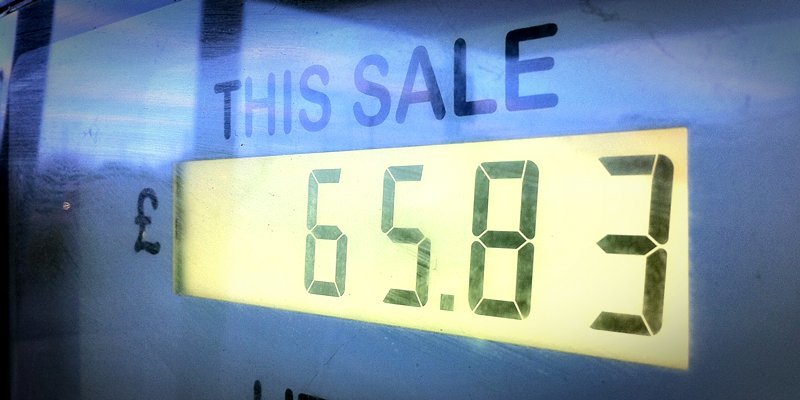Forfar farmer Andrew Steel has added his voice to The Courier’s Fight For Fairer Fuel campaign.
Farming 650 acres from his base at Craignathro just south of Forfar, Mr Steel says he is really beginning to feel the effect of higher diesel prices.
Fuel for agricultural use carries a lower rate of duty but nonetheless is now proving to be very expensive.
“I can’t believe the cost of fuel. This tractor holds 410 litres of diesel, enough for two days’ ploughing, and a fill at the moment costs £270,” he told The Courier. “I looked back at my records to see what it cost in 2001 and it was only £76. I wish the commodities we were selling had gone up by 360% but unfortunately 60% would be more like it.”
Mr Steel, who employs two staff and is vice-chairman of the East Central Region of NFU Scotland, grows cereals and potatoes and finishes 300 cattle and 500 sheep each year.
“I suppose we are lucky that grain and potato prices are fairly strong but even so the fuel price is a real worry. Last harvest I sold malting barley at £130 per tonne so looking at it another way I need to sell two tonnes to fill the tractor just once.
“That is bad enough but the 2009 harvest barley only made £78 per tonne so imagine the impact if prices ever went back to that level.”
He has four tractors at Craignathro plus two industrial forklifts and a rough terrain loader all of which are used regularly. He also has a car and a pick-up and, as he points out, in a rural location he has no option but to use them.
“I don’t understand why fuel is so expensive. In 2008 oil was $147 per barrel compared to $110 per barrel today. Petrol and diesel were pricey then but not at today’s level. In my view the quicker we have an effective ombudsman the better.”
But it is not only vehicle fuel which is the problem on farms, he points out. Other inputs such as nitrogen fertiliser need energy in the production process and the price is oil related.
A year ago nitrogen fertiliser was well under £200 per tonne. Now it is £330 per tonne. The crops at Craignathro and other farms in Courier country are going to be expensive to produce this year.
